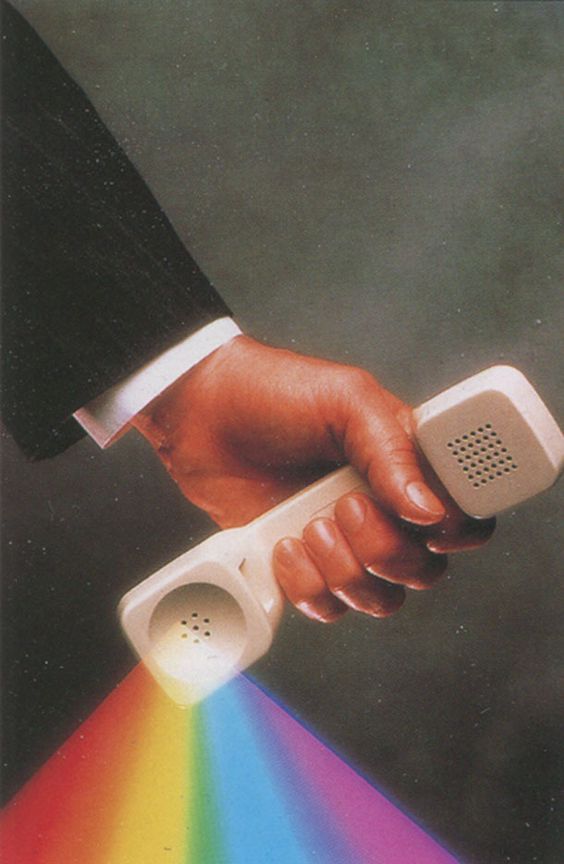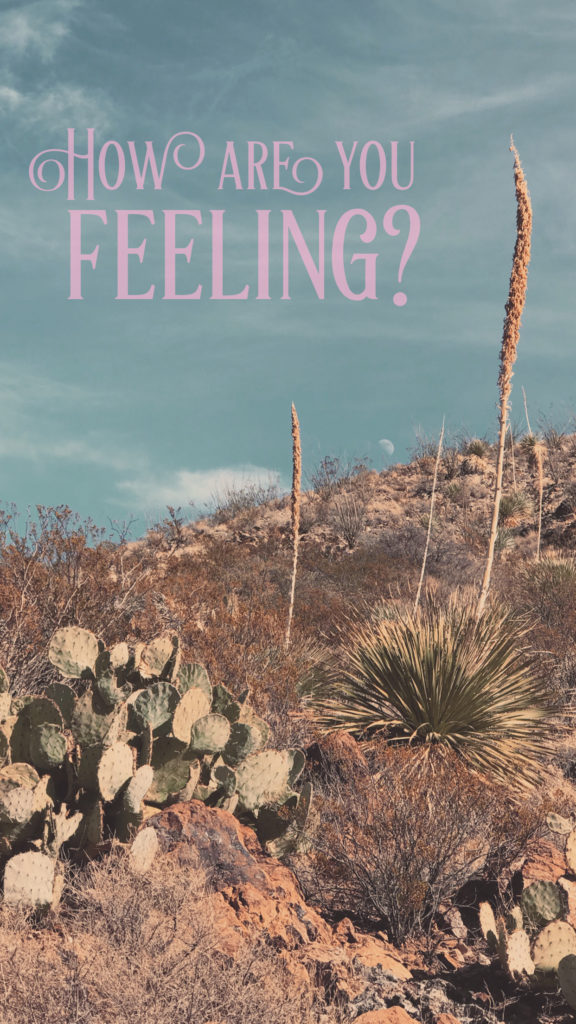
TECHNOLOGICAL HYGIENE
A WISE GUIDE TO CONNECTION IN THE DIGITAL AGE

“Beware the stories you read or tell; subtly,
at night, beneath the waters of consciousness,
they are altering your world.”
B e n O k r i

This might sound weird, but I have to tell you something you might not realize about yourself. You have a problem. I do too. We all do, most of us. You see, in the last few years, something has changed in of our lives. It started slowly at first, and became so much a part of our everyday lives, that we scarcely even noticed how it was shaping our experience of the world. At first, it seemed like a good thing, and there are many good things about it — but it quickly took a turn for the worse. I’m talking smartphones and about how they have silently found their way into nearly every facet of our lives and every moment of our day.
How in control are you of your smartphone use, really? Be honest. Do you ever find yourself on your phone and forget why you even picked it up in the first place? Do you feel the urge to look at it every time you’re bored or have a moment to spare? I hate to say it, but I know I do. So why is it that we’ve become so dependent on our phones? And more importantly, what is it doing to us: emotionally, physically, socially, and neurologically? The guide which follows explores just how we got where we are today and how we can begin to find our way back to a healthy relationship with these small but powerful tools. Ultimately this is a roadmap, to show you the way back to using your phone rather than allowing it to use you…

I T A L L S T A R T E D I N C U B A
Recently, I spent a week in Cuba for my birthday. And for that one week, I had absolutely no access to telephone, internet, email, and most importantly, social media. Though reluctant to admit it, I had felt more than a little anxious beforehand about this stretch of being incommunicado, but the resoundingly positive effects I ended up experiencing from this short time away were more profound than I could have ever imagined.
Before I left for my trip, my health had been precarious. Feeling depleted by recent events in my personal life, the last weeks of winter, and the virulent flu that was dropping everyone in my life like flies, I was uncertain of how wise it was for me to undertake an international trip. But it ended up being marvelous. I felt stronger and more resilient than I had in years. The difference I noticed in both my mental and physical health was nothing short of miraculous.
While there were certainly other factors which contributed to my improved overall well-bring, the role that unplugging played in my heightening vitality cannot be over-stated. I relished those days away from my phone and computer. I felt free and totally present in the moment in a way I had not in years. I had to ask strangers for help and talk to the people around me in a way I probably wouldn’t have, had my phone been at the ready, to offer directions and recommendations, to translate words, and provide transportation on demand. Everyone in Cuba looked at each other. They even smiled, if you can believe it. And I smiled back, because I felt whole and healthy, and like a vital part of myself had been returned to me at last.
T H E B O D Y D O E S N ‘ T L I E
It was a short trip though, and as my flight prepared to touch down in the US, I could feel my heart constricting. My focus began to narrow, and my body grew tense. My physiological response as I anticipated receiving nearly six days worth of information and communication all at once was marked and undeniable. I didn’t take my phone off of airplane mode when we landed, but waited instead until I had eaten, drank, and was finally seated and settled somewhere quiet; somewhere I could actually be present with the flood of information that I was anticipating. I calmly set my phone to silent and do not disturb and then awakened it from its dormant state. It began to vibrate wildly and without stopping for about two minutes. The tremors sent a feeling of dread through my body and I dared peek at the screen only once the phone lay – finally – still.
With a newfound awareness of my sensitivity to this device, I took my time as I carefully read through emails and text messages, reminding myself that none of them required an immediate response. I looked at Instagram briefly, but found it surprisingly uninteresting. I started to post a photo from my trip, but then chose not to and allowed myself to instead continue savoring the experience that was still unseen and belonged only to me.
I was grateful to be able to text a friend and ask them to pick me up at the airport, but other than that, I had little real need for my phone, so I put it away in my backpack and spent the rest of my three hour layover finishing a book I’d been reading. I didn’t look at it again until the next day when I used it, out of necessity, as a meditation timer. Suddenly, this small device which I’d previously felt so anxious to be without, felt more like a burden than a blessing.
W A K I N G U P
The positive effects of a tech-free vacation quickly wore off as I returned to work and emails and Instagram and well, All The Things. But the memory of this experience stayed with me and I began to notice a distinctive difference in my desire to engage with my phone. Returning to the states, I felt a sense of horror, as everywhere I went, everyone I saw, was on their phones. Driving, at the grocery store, at the coffee shop, walking their dogs, even at the pool. There was no where that I didn’t see phones. Couples out to dinner barely spoke except to show one another something on their respective screens every few minutes. No one else seemed to notice or to care — they were all too busy, swiping and scrolling and texting, to even notice that everyone else was doing the exact same thing.
Watching this, I felt like I was surrounded by zombies or robots – but certainly not humans. Was anyone else paying attention to the quality of late Winter light all around us, or listening to the sound of the trains as they passed in the distance? I felt lonely and far away from the people around me. It was as though there was a thick fog which separated us, but which only I could see. Have you ever experienced something similar? Have you ever looked up from your device to notice that everyone else was looking down at theirs?
W H A T H A P P E N E D ?
Thoughtful conversations about technological engagement and smartphone use are vital and we need to be having them — with ourselves, with our families, and with our communities. The level of technology addiction that we are experiencing as a culture right now has reached epidemic proportions. But what’s most disturbing is just how little we are talking about it or doing anything to really address it.
Smartphones have infiltrated nearly every aspect of our lives and we’ve become dependent upon them, seemingly overnight. Our relationship with these devices is having serious negative impacts on our health, both as both individuals and as a society. On a personal level, excessive smartphone use is having startling effects on our overall cognitive function, our capacity for memory, and our ability to focus, not to mention our sleep, mental health, and physical well-being. Societally, we are becoming dangerously dependent on devices which are, essentially, making us dumb. Smartphones, dumb people. Houston, we have a problem…

C H A N G I N G O U R M I N D S
Over the last couple of years I’ve noticed that my memory seems much poorer than ever before and that I can hardly make it through a book to save my life. Have I always been like this? I don’t think so. Neurological research has shown that the near-constant distraction provided by smartphones is, indeed, having devastating effects on not only our ability to recall memories from our past, but also to create new ones. Our capacity for sustained focus and critical thinking is being significantly impacted by our smartphone use. This is because the way that we interact with our phones is literally changing our brains. As researcher, B. Sparrow explains, “we are becoming symbiotic with our technology; remembering less actual information and instead committing to memory where such information can be found. The processes of human memory are adapting to the advent of new computing and communication technology.”
Our brains are highly plastic. This is especially true when we are children, but remains so throughout our lives. The neurological networks in our brains are constantly growing and changing in relationship to both the environment and stimuli to which they are regularly exposed. This is why the more time we spend practicing something, the more natural it eventually becomes. Because so much of our time is spent engaging with our devices, our brains are being shaped in response to how we use them. Certain aspects of our neurology have essentially become extensions of the technology we use most often.
Kids and teens spend more time on their phones than any other demographic. And as I mentioned, their neural networks are also the most malleable. What this means is that the brains of the next generation are literally being formed largely in response to the devices and apps that they are exposed to. Many of the designers of these products do not allow their own children to have access to them. We should not take this fact lightly, as it implies that there serious unknown consequences for those who are exposed to these technologies and platforms before a certain age.
If all of this sounds daunting – it is. But there’s good news too. Once we realize that our behavior is problematic, then we can take steps to change it and rebuild much of what has been lost. My time in Cuba, sans phone, showed me just how quickly we can regain our ability to place our attention on things that truly matter and enrich our lives. I spent more time reading, and did so with greater comprehension, than I had in years. Upon returning home and continuing to intentionally limit my screen time, I noticed an exponential increase in my ability to be present with the people in my life, to focus on the work that was in front of me, and to engage meaningfully with whatever it was that I chose to put my attention on (which – spoiler alert – was not my phone).

B O R E D O M A N D C R E A T I V I T Y
Idle moments were previously unavoidable and naturally built into the structure of our lives. Remember sitting by the pool with only a magazine to read? Once you’d tired of the articles therein, what was there to do but drift off into thought, or gaze at the clouds above? This, however, is no longer the case. Any spare moment is an opportunity to “connect” or “check in” or “catch up.” Waiting in line at the bank? Why not check your email. Riding the bus for your morning commute? Why not google videos of kittens? Out to dinner with your girlfriend and she gets up to go the bathroom? Let’s just see if you have any new texts, or check Instagram for the 50th time today. You get the point. These simple moments of inactivity and spacious awareness have disappeared from our days. And this is problematic.
Boredom, stillness, and unfocused awareness are all essential to our creativity, memory, and ability to find novel solutions to life’s many problems. It is in these moments of expansive awareness, when our attention is resting on nothing in particular, that we have the opportunity to make important connections between seemingly disparate thoughts and and ideas. These are often the moments from which our greatest realizations arise. They are also the moments when our nervous systems previously had the opportunity to reset themselves, even amidst the hectic rhythm of modern life. Without these simple pauses, nearly every moment of our day becomes externally focused, when what is needed most is a gentle gaze inward.

T R Y T O F O C U S
How many times a day do you check your email? Be honest. How about Facebook? Instagram? Snapchat? While some call this the Age of Entertainment, I would argue that we are living in the Age of Distraction. Fragmenting our attention throughout the day as often as our phones urge us to is devastating to our ability to sustain focus and think critically about complex topics, which require a longer attention span than most adults can now sustain. If pervasive and persistent enough, this habit of dividing our attention and attempting to multi-task can actually permanently reduce our capacity for concentration.
Our ability to focus is intimately related to our capacity for both deep thinking and meaningful productivity. Dr. Cal Newport explains that “we’ve built up a culture of convenience and simplicity…at the cost of effectiveness and true productivity, and this is something that we need to change.” He goes on to point out that “busy-ness as a proxy for productivity is something that many of us have defaulted to.” But busy-ness is more of a choice than we realize, and by attempting and failing to effectively multi-task we are becoming significantly less productive and capable of doing truly meaningful work.
Y O U R A T T E N T I O N I S P R E C I O U S
Although not many people are talking about smartphone addiction, the cultural critiques and personal narratives of dissatisfaction when it comes to social media have reached a deafening volume – and rightly so. Social media is designed to be addictive and it has the unique ability to reinforce our most deep-seated and negative beliefs about ourselves and the world. We select what we see and if we are not conscientious, we will continuously reinforce, and ultimately perpetuate, the unhealthy narratives we have inherited rather than examining and re-writing them.
Instagram in particular is like an emotional rollercoaster for the unconscious. This is partly because it requires very little time and attention to consume the tidbits of content that it has to offer, and so it finds its way into far too many moments of our day. This near-constant awareness of what others are doing is having a profoundly negative effect on our ability to be present in our own lives. Additionally, because of the fact that unlike a book, magazine article, or email, your Instagram feed has literally no end – that impulse to check the comments on your latest post can turn into a half-hour or more of mindless scrolling. And correct me if I’m wrong, but I don’t think that’s anyone’s definition of living their Best Life™…
A N D Y O U R F E E L I N G S M A T T E R
You know that vague yet crushing sense of deflation and emptiness that you often get after looking at your phone? Pay attention to that. You are having a complex emotional reaction that is occurring beneath the level of your conscious awareness. This reaction is effecting your nervous system, your ability to do your work, and most distressingly — your sense of self worth.
At this point in the conversation surrounding the negative effects of social media, it has almost become a cliche, but it remains true : Don’t compare your complex and nuanced reality with everyone else’s highly curated public representations. Just don’t. Because you know what? For every aesthetically pleasing moment of someone’s life captured on film and shared online, I promise that there are countless others filled with many of the same things you experience on a daily basis, including but not limited to: loneliness, boredom, feelings of isolation, insecurity, unworthiness, confusion, sadness, frustration, and mucho bad hair days. Fret not, for no one is perfect, and you don’t have to try to be. By putting others on pedestals based on what they choose to share on social media, you’re actually dehumanizing them, and yourself in the process.
Pay attention to how you feel when you scroll through social media. When you notice that certain people or accounts bring up feelings of jealousy, resentment, etc. — here’s a little trick I learned that you can use to counteract this negative experience. Unfollow them y’all. It is an act of self-sabotage and compulsion to continue to subject yourself to people who (by no fault of their own) make you feel like shit about yourself when you witness the golden moments of their seemingly glamorous lives. Does that mean you should not be curious about the feelings that arise? Certainly not, but you have full permission to give yourself some space from being constantly triggered by someone who you may not even know and will likely never meet.
You can also unfollow people you do know though, even if they are your friends. Sometimes it is better to keep your relationships IRL. We all need breaks sometimes and that is okay. And while following some folks in your chosen field may leave you feeling more inspired and empowered to create your own original work, if witnessing others whose work is similar to yours leaves you feeling like just one more fish in a too big sea, then look away, darling, and simply swim on. Because I promise that what you have to contribute to this world is valuable and unique. And vibrant creativity cannot flourish in an atmosphere of constant low-level subconscious comparison. So unfollow, unfriend, and carry on with the one life that is yours to live and live well.

H A R D W I R E D
We are social creatures hardwired to connect with one another and to seek approval and validation from the communities of which we are a part. However, we often look in all the wrong places to get our needs met when it comes to finding real connection. Rising rates of isolation and depression in America make us increasingly susceptible to addiction in general and to smartphone addiction in particular. This form of self-soothing and escapism is not only widely socially acceptable but it also masquerades as a substitute for real connection and a false symbol of productivity.
When you first got your phone, you probably looked at it when it rang, or when you received a text message. Ten years ago it wouldn’t have even occurred to you to look at your phone if you felt bored, anxious, or lonely. But with the rise technology that is explicitly designed to exploit your desire for connection, stimulation, and reward, no external cues are even necessary to inspire the urge to pick up your phone. Our phones have become a quick fix for temporary relief from feelings of loneliness and disconnection. But the solace we receive is only temporary and we often find ourselves feeling worse than before, after checking and checking again…
The majority of popular gaming, dating, and social media apps are designed based on the psychology of variable rewards. This is the same concept which makes slot machines so thrilling and addictive. Most of the time, you get nothing, but you never know when you might win it big. What this means is that sometimes when you check an app, you get the positive feedback and concurrent dopamine hit you are craving, and other times you get nothing. Apps like this (most notably Facebook, Snapchat, and Instagram) are designed to exploit thousands of years of neurological evolution. So, don’t feel bad if you’ve fallen prey to this manipulation of your psychology. No one is immune.
T H E R O L E O F D O P A M I N E
There is a place in California that is literally called Dopamine Labs. Run by Ramsay Brown, Dopamine Labs combines Artificial Intelligence with Advanced Neuroscience to engineer software that is as “engaging” and “persuasive” as humanly possible. The technologies developed by companies like Dopamine Labs are intentionally designed to alter our neurochemistry and activate the reward centers in our brains. These are the same parts of our brains that are activated by other addictive substances and behaviors including alcohol, drugs, gambling, etc. And the consequences can be just as devastating. However unlike drugs and alcohol, there is very little stigma around smartphone addiction and it is widely socially acceptable. The near-constant stimulation our phones provide is leaving us more tired, depleted, and unable to focus than ever before. It is contributing to rising demographics of depression, anxiety, and attention disorders and compromising our ability to, essentially, think and act like reasonable adults.
“We’re not just designing software, we’re designing minds,” explains Ramsay Brown. “We can’t ethically sell to teams that are developing products that might be really good for capital and technology, but really shitty for humans.” And while this particular company appears to be using the powerful tools at its disposal for good rather than ill, the fact of the matter is, that many others companies with similar capabilities are not. And when we increase the amount of time that we spend on any given app, the revenue generated by that app increases proportionately. Time is money. Or more accurately, your time is their money. In some ways, time is the only real currency, as well as the one truly non-renewable resource, that we all have. So, is this how you want to spend yours?
T I M E I S M O N E Y
( WELL NOT REALLY, BUT Y’KNOW LATE CAPITALISM AND SHIT )
In an age where nearly everything has a price tag attached to it, have you ever wondered why all social media apps are free? Think about it for a second. Is it because Mark Zuckerberg and the CEOs of Twitter and Snapchat just want the world to be a happier, more connected place? Unfortunately, I don’t think so. Social Media is free for us, the users, because it is our time, attention, and personal information that are the products being sold.
In 2017 41 billion U.S. dollars were spent on advertising on Social Media (up from 17.85 billion in 2014). The more time that you spend on any one app, the more advertising revenue is maximized for its investors. It is in their interest, but not yours, to get you hooked. Many people now spend over an hour a day on Facebook alone. Just imagine if these same people were meditating an hour a day, or volunteering at a local community organization, or gardening, or doing literally anything else. What we put our attention on grows. And too many of us, present company included, have been putting too much attention on the digital sphere for too long.
B I G D A T A
“Our smartphone, is a vast psychological questionnaire that we
are constantly filling out, both consciously and unconsciously.”
In addition to revenue from advertising, selling personal data is a major source of profit for social media companies. Every click we make online adds to the accumulated psychographic profile that is steadily growing for each of us and being sold to the highest bidder. Hannes Grassegger & Mikael Krogerus explain that” Big Data means, in essence, that everything we do, both on and offline, leaves digital traces. Every purchase we make with our cards, every search we type into Google, every movement we make when our mobile phone is in our pocket, every ‘like’ is stored. Especially every ‘like’… On the basis of an average of 68 Facebook ‘likes’ by a user, it was possible to predict their skin color (with 95 percent accuracy), their sexual orientation (88 percent accuracy), and their affiliation to the Democratic or Republican party (85 percent). But it didn’t stop there. Intelligence, religious affiliation, as well as alcohol, cigarette and drug use, could all be determined. From the data it was even possible to deduce whether someone’s parents were divorced.”
T H E P E R S O N A L
B E C O M E S P O L I T I C A L
Regardless of your political affiliation or beliefs, it is important to understand how the personal data you share through engaging with social media is being used to influence and manipulate your perspective. For several years, Cambridge Analytica has been using Facebook to build psychographic profiles for nearly 250 million American adults. In 2016, the Trump campaign then hired this company to execute micro-targeted political ads based on this information. They did this using an advertising product offered by Facebook called a “dark post,” which is a message that shows up in your newsfeed but is not seen by anyone else besides the specific users being targeted.
With the help of these ultra-specific dark posts, Cambridge Analytica and Trump’s digital team showed extremely specific ads to different voters based on their unique psychographic profiles. McKenzie Funk explains in the New York Times how “dark posts were used to try to suppress the African-American vote. According to Bloomberg, the Trump campaign sent ads reminding certain selected black voters of Hillary Clinton’s infamous “super predator” line. It targeted Miami’s Little Haiti neighborhood with messages about the Clinton Foundation’s troubles in Haiti after the 2010 earthquake.” While the details and implications of this are at once fascinating and deeply unsettling, they certainly exceed the scope of this particular essay. I recommend reading the following articles to more fully understand the political implications of Big Data :
S O V E R E I G N T Y B E G I N S W I T H I N
We cannot allow our inner worlds to continue to be passively colonized by technologies and algorithms that we do not control or understand. Our awareness and internal space is sacred and must remain sovereign. However, this is not easy and it takes active commitment to making different choices about how we use our phones and other technology. What follows are questions, exercises, and simple steps you can take to protect what is sacred within you while continuing to use your phone as the powerful magical tool of connection that it has the potential to be.
It essential to remember that our phones and the apps that we use on them are designed by actual humans with inherent biases which will inevitably find their way into the way we interact with these technologies. At this time, the people designing the most widely used products are economically privileged, predominantly white, and almost exclusively male. This extremely narrow demographic does not proportionately or accurately represent the preferences or perspectives of the wider population which the products they create are meant to serve. The code which is used to create these products is a language, a tool, and an art form. The more people who have access to both the education and the resources to use this code effectively, the more we can hope to see technology transform into a tool for making the world a more equitable and just place for all.





